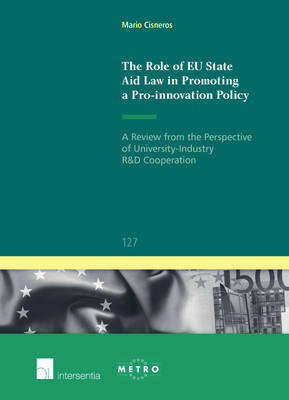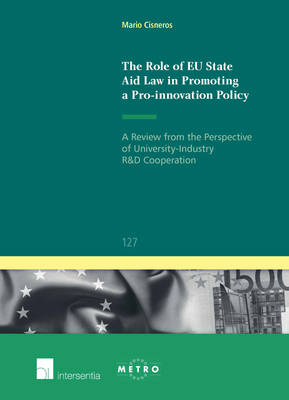
- Afhalen na 1 uur in een winkel met voorraad
- Gratis thuislevering in België vanaf € 30
- Ruim aanbod met 7 miljoen producten
- Afhalen na 1 uur in een winkel met voorraad
- Gratis thuislevering in België vanaf € 30
- Ruim aanbod met 7 miljoen producten
Zoeken
The Role of EU State Aid Law in Promoting a Pro-Innovation Policy
A Review from the Perspective of University-Industry R&d Cooperation Volume 127
Mario Cisneros
€ 67,45
+ 134 punten
Omschrijving
State funding constitutes an important tool to promote innovation by creating links between industries, universities, and research and development (R&D) institutions. Moreover, the grant of public funds administered by universities and research institutions is decisive in the improvement of productivity and competitiveness of EU firms. In this context, the development of a legal framework that promotes an efficient use of State aid in R&D cooperation represents an important challenge for the EU. While most of the current efforts concentrate on how public expenditure can be made less distortive to the market, less emphasis is put on the need for the proper use of patents, know-how, licenses, and technology transfers to enhance the positive effects of State R&D expenditure. A new analysis in view of the fundamental conflicts between State aid law and intellectual property rights (IPRs) resulting from State funding is essential. This book explores the definition of State aid and the application of its main legal constituents in the context of public-private R&D cooperation. The book contributes to the field by: 1) providing a policy model for the assessment of IPRs under EU State aid law; 2) defining strategies with which the European Community should assess State aid compatibility of R&D cooperation contractual clauses; and 3) developing criteria to appraise efficiency in the use of IPRs in subsidized public-private cooperative R&D. Ownership of IPRs, knowledge dissemination, and licensing are assessed from the perspective of State aid law, and the dynamic efficiency and systemic failure theories. In addition, the notion of selective advantage and distortions caused by competition are analyzed in connection with R&D cooperation and IPRs. The discussions presented constitute a contribution to the current State aid modernization initiative and to future revisions of the EC framework for State aid for research and development and innovation ("the R&D&I Framework") and the relevant provisions of the General Block Exemption Regulation. (Series: Ius Commune Europaeum - Vol. 127)
Specificaties
Betrokkenen
- Auteur(s):
- Uitgeverij:
Inhoud
- Aantal bladzijden:
- 167
- Taal:
- Engels
- Reeks:
Eigenschappen
- Productcode (EAN):
- 9781780682341
- Verschijningsdatum:
- 2/04/2014
- Uitvoering:
- Paperback
- Formaat:
- Trade paperback (VS)
- Afmetingen:
- 172 mm x 236 mm
- Gewicht:
- 326 g

Alleen bij Standaard Boekhandel
+ 134 punten op je klantenkaart van Standaard Boekhandel
Beoordelingen
We publiceren alleen reviews die voldoen aan de voorwaarden voor reviews. Bekijk onze voorwaarden voor reviews.











